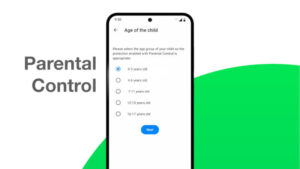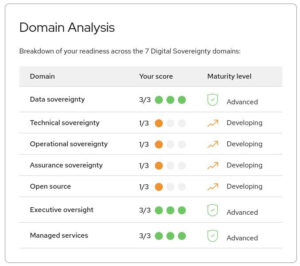FOSS Week in Review
NSA involved in industrial espionage
Another big non-surprise this week in the continuing saga of the NSA. It appears that our beloved spy agency has been using their secret powers for the purpose of uncovering industrial secrets from foreign companies. So much for the separation of business and state. Reuters reported that in a television interview with a German TV network, Edward Snowden said the agency doesn’t confine its intelligence gathering to items of national security.
“‘If there’s information at Siemens that’s beneficial to U.S. national interests – even if it doesn’t have anything to do with national security – then they’ll take that information nevertheless,’ Snowden said…”
Even the Republicans are jumping on the stop-the-NSA bandwagon, which is rather surprising.
On January 24th, Ars Technica reported that at the Winter Meeting General Session held by the Republican National Committee last week in Washington, DC, the GOP passed a resolution that “encourages Republican lawmakers to immediately take action to halt current unconstitutional surveillance programs and provide a full public accounting of the NSA’s data collection programs.”
Some of this is, no doubt, Obama baiting as the resolution came the day after the president disagreed with the findings of a congressional committee calling for the shutdown of the telephone data collecting program being run by the NSA.
On Monday we learned from Reuters that the NSA, along with their British counterparts, have been using mobile web apps that leak sensitive information, such as Angry Birds, in their intelligence gathering operations. The Obama administration assures us that we have no need to worry, however.
“White House spokesman Jay Carney said U.S. surveillance agencies were only interested in collecting data on people considered a threat to the United States.
“‘To the extent data is collected by the NSA through whatever means, we are not interested in the communications of people who are not valid foreign intelligence targets, and we are not after the information of ordinary Americans,’ Carney told a regular White House news conference.”
At risk in this latest ploy are address books, phone logs, location data in photos posted to social media sites, information from Google Maps and buddy lists. In other words, what happens on an iPhone doesn’t stay on an iPhone–or an Android either, unfortunately.
Meanwhile, a group of tech companies that includes Google and Microsoft, have reached a deal with the Obama administration that will allow them to release more information on “requests” from intelligence agencies to the public.
Also, Oracle’s Larry Ellison weighed in on the NSA brouhaha at a conference in San Francisco on Wednesday. Reuters tells us he started by explaining that Oracle products are completely bulletproof when it comes to hackers and spiers.
“‘To the best of our knowledge, an Oracle database hasn’t been broken into for a couple of decades by anybody,’ Ellison replied. ‘It’s so secure, there are people that complain,’ he added.…
David Litchfield, an established security expert and frequent speaker at top hacking conferences, disagreed with Ellison’s comments and said he regularly sees Oracle systems being compromised.
“Of all of the commercial databases, Oracle is the least secure,” he told Reuters by email.
Anyway, Mr. Ellison is all for the NSA’s actions and thinks they’re essential to stopping terrorism. At least, that’s what he told Charlie Rose back in August.
All of this happened during the same week that two Norwegian politicians nominated Edward Snowden for the 2014 Nobel peace prize. Maybe February will be a better month for the poor spooks at the NSA.
Microsoft crossing a threshold?
It’s common knowledge that Microsoft is making tons of money collecting licensing fees from makers of mobile devices running Android. Well, according to BGR, Redmond may be set to make more money licensing its own Windows Phone than from trolling. Don’t expect this to happen in the next few weeks or months, however.
“In all, 42% of licensing revenues came from Windows Phone vendors on the quarter while 58% came from Android vendors, Beyond Devices estimates. If Windows Phone keeps showing impressive sales growth over the next few quarters then it could soon generate more revenue for Microsoft than Android does within the next year.”
We’ve also learned there’s been something of a fire sale on tablets running Windows at Microsoft Store, with Windows devices from Toshiba and Dell selling for as little as $229.

Ex commissioner urges FCC to make ISP’s “common carriers”
Former FCC commissioner Michael Copps has called for his old agency to declare ISPs “common carriers” in order to reinstate the “Internet neutrality” rule that was struck down by a federal court in January. Writing on the website for the Benton Foundation, Copps foresees a bleak outcome if this isn’t done.
“The time is now for the FCC to classify broadband as Title II. Without this step, we are playing fast-and-loose with the most opportunity-creating technology in all of communications history. Without this step, we are guaranteeing an Internet future of toll-booths, gatekeepers and preferential carriage. Without this step, we stifle innovation, put consumers under the thumb of special interests, and pull the props from under the kind of rich civic dialogue that only open and non-discriminatory communications can provide.”
He admits that this move would be difficult and certain to face much push back, but calls on his former colleagues to rise to the occasion, while offering some advice on what not to do.
“Saying that the solution is simple is not the same as saying it is easy. No matter what course the Commission chooses, powerful forces will contest it. If the Commission, instead of reclassifying broadband as what it is, attempts some new and novel reading of the statute, it is just inviting more years of detour and delay. And every month of delay only gives the big telephone and cable companies more time and opportunity to make the Internet…theirs.”
Copps served as a commissioner from 2001-2011 and was acting chairman for six months in 2009.
Ars Technica reported on January 23rd that the striking down of Internet neutrality rule is worrying Netflix, whose streaming movie service accounts for a large percentage of overall Internet traffic. In a letter to shareholders, the company attempts to remain optimistic while admitting this could adversely affect their business.
“Moreover, ISPs have very profitable broadband businesses they want to expand. Consumers purchase higher bandwidth packages mostly for one reason: high-quality streaming video. ISPs appear to recognize this and many of them are working closely with us and other streaming video services to enable the ISPs’ subscribers to more consistently get the high-quality streaming video consumers desire.
“In the long term, we think Netflix and consumers are best served by strong network neutrality across all networks, including wireless. To the degree that ISPs adhere to a meaningful voluntary code of conduct, less regulation is warranted. To the degree that some aggressive ISPs start impeding specific data flows, more regulation would clearly be needed.”
Google beats patent troll
When Beneficial Innovations began taking legal action against websites using Google’s Doubleclick ad technology, the search company took the troll to court for suing their customers. It seems that in 2010 Google had settled with Beneficial and that settlement specifically covered their customers. According to Ars Technica, Google made it easy for the court to find in their favor.
“Google didn’t try to prove a damages case, instead seeking only nominal damages of $1. But the outcome will prevent Beneficial from suing more Doubleclick customers and could send a message to other ‘patent trolls’ that trying to double-dip after a settlement with Google is a bad idea.”
According to David Rosen. one of Beneficial’s lawyers, no decision has been made on whether to file an appeal.
That does it for another week. Enjoy the warmer weather while it lasts. Until next week, may the FOSS be with you…













